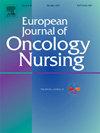护士主导的健康教育模式对临时造口患者的影响:一项随机对照试验。
IF 2.7
3区 医学
Q1 NURSING
引用次数: 0
摘要
目的:评估以护士为主导的斯金纳健康教育模式对造口准备出院、自我管理、社会影响和并发症发生率的影响。方法:在福建省某三级医院胃肠外科,采用盲法评估进行重复测量随机对照试验。共有124名参与者被随机分配到干预组或对照组。干预组接受结构化的渐进式造口护理方案,纳入斯金纳的程序教学原则,分为七个阶段:术前教育、造口观察、护理培训、积极参与、自我护理、家庭管理和支持性指导。数据收集发生在四个时间点:干预前(T0)、出院(T1)、住院后1 (T2)和3个月(T3)。结果测量包括出院准备、造口自我管理、社会影响和造口相关并发症。回顾了医疗记录中的并发症数据。使用广义估计方程评估组、时间及其综合影响对结果的影响。结果:干预组患者出院准备情况有显著改善(p)。结论:护士主导的skinner健康教育模式显著提高了造口患者的出院准备和自我管理,同时也减轻了社会影响和并发症。建议将护士主导的健康教育模式融入临床实践,以提高患者的自我管理和心理社会适应能力。本文章由计算机程序翻译,如有差异,请以英文原文为准。
The effect of a nurse-led health education model for patients with temporary stomas: A randomized controlled trial
Purpose
To assess the impact of a nurse-led Skinner-based health education model on stoma readiness for hospital discharge, self-management, social impact, and complication rates.
Methods
In a tertiary care hospital's Gastrointestinal Surgery Unit in Fujian, China, a blinded assessor conducted a repeated-measures randomized controlled trial. A total of 124 participants were assigned to either the intervention or control group randomly. The intervention group was subjected to a structured, progressive stoma care protocol incorporating Skinner's procedural teaching principles across seven stages: preoperative education, stoma observation, care training, active participation, self-care, home management, and supportive guidance. Data collection occurred at four time points: pre-intervention (T0), hospital discharge (T1), and 1 (T2) and 3 months post-hospitalization (T3). Outcome measures included hospital discharge readiness, stoma self-management, social impact, and stoma-related complications. Medical records were reviewed for complication data. The impact of group, time, and their combined influence on the results was assessed using generalized estimating equations.
Results
Patients in the intervention group demonstrated significant improvements in readiness for hospital discharge (p < 0.001), stoma self-management (p < 0.001), social impact (p < 0.05), and incidence of complications (p < 0.05) compared to the control group.
Conclusion
The study indicates that the nurse-led Skinner-based health education model significantly enhances readiness for hospital discharge and self-management in stoma patients, while also mitigating social impact and complications. It is recommended that the nurse-led health education model be integrated into clinical practice to enhance successful self-management and psychosocial adaptation in stoma patients.
求助全文
通过发布文献求助,成功后即可免费获取论文全文。
去求助
来源期刊
CiteScore
4.40
自引率
3.60%
发文量
109
审稿时长
57 days
期刊介绍:
The European Journal of Oncology Nursing is an international journal which publishes research of direct relevance to patient care, nurse education, management and policy development. EJON is proud to be the official journal of the European Oncology Nursing Society.
The journal publishes the following types of papers:
• Original research articles
• Review articles

 求助内容:
求助内容: 应助结果提醒方式:
应助结果提醒方式:


